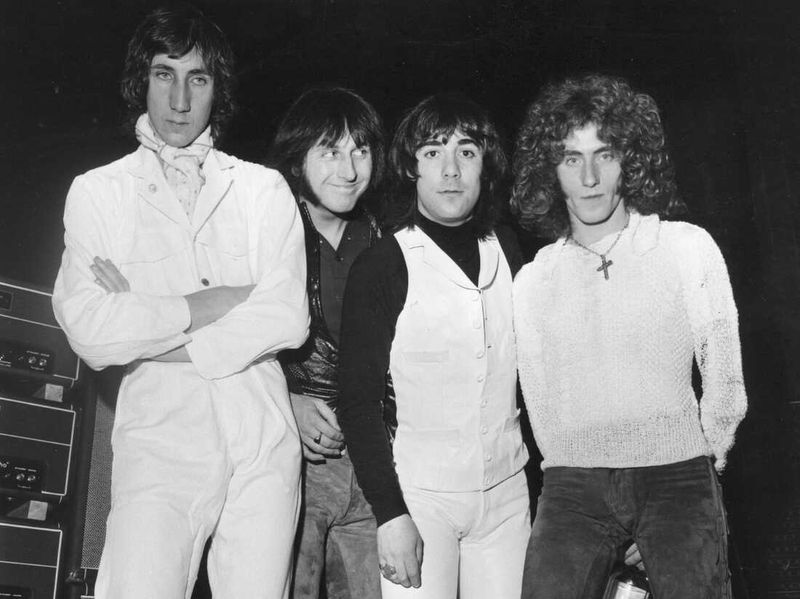9 Warnings From The ’50s That Were Way Off – 9 And Pieces of Advice That Still Hold Up

Ah, the fabulous 1950s—a decade brimming with bouncy poodle skirts, pompadour hairstyles, and outrageously earnest advice. Rock ‘n’ roll burst onto the scene with hip-shaking Elvis Presley, prompting worried parents everywhere to dramatically predict that his scandalous moves would doom America’s youth forever.
Spoiler alert: We survived those swiveling hips just fine! Yet, for every hilariously misguided warning—like “Watching TV will ruin your eyesight!” or “Comic books are corrupting kids!”—the era also gifted timeless gems of wisdom that still resonate today.
Remember being told, “Breakfast is the most important meal,” or hearing grandma insist, “A penny saved is a penny earned”? Through a lens of humor, nostalgia, and playful skepticism, we’re hopping back into our metaphorical DeLorean to revisit 18 delightfully absurd warnings alongside 18 truly valuable lessons.
So, let’s crank up that jukebox, slip on your saddle shoes, and explore just how delightfully right—and fabulously wrong—the ’50s truly were!
1. “Rock ‘n’ Roll Will Ruin the Youth!”

Remember when the world trembled at the thought of rock ‘n’ roll corrupting the youth? Elvis’s swiveling hips were considered a national threat, and parents feared the end of civilization as we knew it. Instead of societal collapse, we got endless dance-offs and a genre that defined generations.
Elvis didn’t ruin us; he just gave us a reason to shake, rattle, and roll. His music became the soundtrack of rebellion, but in the best possible way. It inspired creativity, freedom, and a break from the mundane.
Rock ‘n’ roll didn’t destroy us; it brought us closer with shared tunes that still echo in today’s playlists. Those hips may have caused a stir, but they left a legacy of joy and expression that continues to thrive.
2. “Sitting Too Close to the TV Will Ruin Your Eyes!”

Back in the day, sitting too close to the TV was akin to inviting eye doom! Parents fretted over this new technology, convinced it would turn eyes square and ruin vision. Fast forward to today—where pocket-sized screens are the norm, glued to our palms like modern-day appendages.
While close TV watching didn’t blind us, it did prepare us for endless scrolling on smartphones. Perhaps our eyes took a bit of strain, but we learned to adapt, turning caution into convenience.
Who knew the real future concern would be staring at screens all day? The warning was way off, but it taught us to be mindful of our viewing habits—a lesson still relevant in today’s tech-savvy world.
3. “Microwaves Will Poison Your Food!”

The microwave—a modern marvel or a kitchen villain? In the ’50s, this newfangled gadget was met with skepticism, with whispers of radiation and poisoned leftovers. Instead of being a culinary calamity, microwaves became the unsung heroes of popcorn nights everywhere.
Forget the fear; microwaves are now indispensable, warming up everything from coffee to comfort food. The paranoia might have simmered, but the convenience and speed of this appliance have only grown.
Now, instead of fearing radiation, we embrace the zap, making instant meals that suit our busy lives. Microwaves didn’t poison us; they revolutionized our cooking, proving that sometimes, fears are just hot air.
4. “Comic Books Cause Juvenile Delinquency!”

Remember when comic books were the gateway to juvenile delinquency? Superman and Batman were allegedly leading youngsters astray, turning them into troublemakers. Turns out, those costumed heroes didn’t inspire crime waves—they inspired dreams and imagination.
Comic books are now celebrated as art and literature, not a menace to society. They paved the way for generations of creators, storytellers, and dreamers who saw the world through colorful pages.
Who knew these tales would become blockbuster movies and cultural phenomena? Comic books weren’t the villains; they were gateways to creativity, proving that sometimes heroes wear capes—and sometimes, they’re just misunderstood.
5. “Women Working Outside the Home Will Destroy Family Values!”

The ’50s warned us that women working outside the home would spell doom for family values. Instead, we witnessed the rise of superheroes—not with capes, but with a blend of careers and caretaking that redefined gender roles.
These women didn’t destroy families; they strengthened them, proving that balancing work and home is indeed possible. Their bravery opened doors for future generations, championing equality and opportunity.
Today, we celebrate these trailblazers who juggled it all, showing that family values are about love, support, and shared responsibilities—not where you punch the clock. The warning was off, but the lesson of empowerment endures.
6. “Telephones Will Destroy Face-to-Face Conversations!”

Telephones were once feared as the destroyers of face-to-face interactions. Little did they know, these rotary relics would evolve into lifelines connecting us across continents with video calls and instant messaging.
The telephone didn’t destroy conversations; it transformed them, allowing us to connect in ways previously unimaginable. We now chat across time zones and continents, bridging gaps once thought insurmountable.
These days, phones bring us closer, not further apart, proving that technology can enhance relationships when used wisely. Instead of ending conversations, phones started a whole new dialogue, one that continues to grow.
7. “Duck-and-Cover Drills Will Save You from a Nuclear Blast!”

Duck and cover! Remember hiding under desks as if they were impenetrable fortresses against nuclear blasts? This quaint Cold War relic promised safety in the event of atomic annihilation.
Spoiler alert: Desks weren’t the protective shields we hoped. The drills might have been futile, but they taught us resilience and the importance of preparedness—even if it’s sometimes misguided.
While desks didn’t save us, the spirit of readiness remains. We embraced drills as exercises in caution, proving that even the most outlandish warnings can teach us something valuable.
8. “Instant Coffee is the Drink of the Future!”

Instant coffee—a miracle brew or a caffeine calamity? Once hailed as the drink of the future, its lukewarm reception suggested otherwise. Enter the era of artisanal brews and gourmet grinds that told instant coffee to take a backseat.
While instant coffee didn’t become the future, it taught us about convenience and quick fixes. The rise of coffee culture brought us specialty drinks that tantalize taste buds and elevate morning routines.
Instant might not have been the future, but it paved the way for a coffee renaissance. From lattes to espressos, we celebrate the diverse world of coffee that instant only hinted at.
9. “Artificial Fabrics Like Nylon Will Replace Cotton Completely!”

Nylon was once the fabric of the future, poised to replace cotton like a sartorial conqueror. Fast forward, and natural fibers made a strong comeback, proving grandma’s sweaters weren’t obsolete after all.
Nylon didn’t overthrow cotton, but it joined the fabric family as a versatile alternative. We learned that fashion isn’t about domination but diversity, blending textures and styles.
From eco-friendly materials to sustainable practices, fashion evolved beyond predictions. Nylon had its moment, but cotton and its companions showed that they never went out of style, proving that the future of fashion is woven with variety.
10. “Save for a Rainy Day.”

Saving for a rainy day—advice as old as time and just as valuable. In the ’50s, this meant tucking away coins in grandma’s cookie jar, a quaint yet effective financial strategy that beats modern credit card debt.
This wisdom taught us to plan for the unexpected, ensuring that a stormy day doesn’t catch us without an umbrella. It’s a lesson in foresight, echoed in today’s emergency funds and savings accounts.
While the medium might have changed, the message remains: financial prudence is timeless. A penny saved is still a penny earned, proving that some advice never ages.
11. “Never Underestimate Good Manners.”

Please and thank you—simple words with powerful impact. The ’50s knew the value of good manners, teaching us that kindness and respect never go out of style.
In a world where tweets fly faster than conversation, these courtesies remind us of the importance of human connection. Manners are timeless, bridging gaps and fostering understanding.
Good manners didn’t just survive; they thrived, proving that the simplest gestures can leave lasting impressions. In the end, politeness is priceless, a currency that never devalues.
12. “Breakfast is the Most Important Meal of the Day.”

Rise and shine! Breakfast—the supposed king of meals—has been touted as essential since the ’50s, a time when frosted flakes reigned supreme. Even today, we debate its importance, with avocado toast advocates admitting its lingering relevance.
Breakfast sets the tone, fueling bodies and minds for the day ahead. It’s a ritual of nourishment that transcends trends, reminding us to start strong.
Whether it’s a smoothie, cereal, or a feast fit for champions, breakfast remains a steadfast tradition. Its importance lies not just in nutrition but in the moments shared over morning meals.
13. “Dress for the Job You Want.”

Dress for success! The ’50s taught us that style speaks volumes, often louder than words themselves. Dressing for the job you want remains a staple of career advice, reminding us that first impressions matter.
While fashion evolved, the essence of this advice stayed true. Dressing the part builds confidence, helping us step into roles with poise and purpose.
From power suits to casual chic, what we wear still influences how we’re perceived. Dressing for the job isn’t about fabric; it’s about confidence and self-expression, proving that style and substance go hand in hand.
14. “Don’t Talk to Strangers.”

Stranger danger! The ’50s reminded us to be wary of unfamiliar faces—a piece of advice that echoes even in today’s digital age. While social media connects us with strangers, the core message of caution endures.
It’s not about fear but awareness, teaching us to navigate the world safely. Whether online or offline, understanding boundaries is crucial for self-protection.
This advice transformed with time, evolving into digital literacy and online safety, proving that some lessons adapt but never expire.
15. “An Apple a Day Keeps the Doctor Away.”

An apple a day—simple, sweet, and surprisingly effective. The ’50s popularized this nutritional nugget, reminding us that nature’s bounty is often the best medicine.
While medical advancements were made, the essence of this advice stuck: prioritize wellness and nutrition. Apples became symbols of health, celebrated for their natural goodness.
Today, we embrace diverse diets, but the apple remains a staple, proving that some dietary wisdom transcends trends. It’s not just a fruit; it’s a philosophy of simple, natural living.
16. “Always Wear Clean Underwear in Case of an Accident.”

Clean underwear—an odd yet enduring piece of advice. The ’50s championed this tip, offering reassurance in case of unexpected mishaps. It’s advice that transcends practicality, diving into the realm of personal pride.
Wearing clean underwear is more than hygiene; it’s about self-respect and readiness. It’s the little things that boost confidence, even if they’re unseen.
This quirky wisdom remains, proving that care in the smallest details can make a difference. After all, preparedness is about more than just appearances.
17. “Honesty Is the Best Policy.”

Honesty—a virtue as old as time. The ’50s touted it as the best policy, a timeless truth that remains relevant even in the age of social media and digital footprints.
Truth builds trust, creating foundations for relationships and reputations. It’s a lesson in transparency, teaching us that integrity is invaluable.
Screenshots and digital trails make honesty crucial, proving that no lie is worth the risk. In the end, honesty isn’t just a policy; it’s a principle that shapes lives for the better.
18. “Family Comes First.”

Family first—a mantra that resonates through generations. The ’50s celebrated family dinners and Sunday outings, moments that strengthened bonds and built lifelong memories.
Even as times changed, the core value of family endured, reminding us that loved ones are life’s greatest treasures. It’s not about quantity but quality, cherishing time spent together.
Family remains the cornerstone of support and love, proving that some values are truly timeless. It’s the foundation from which we grow, a constant amidst life’s changes.
